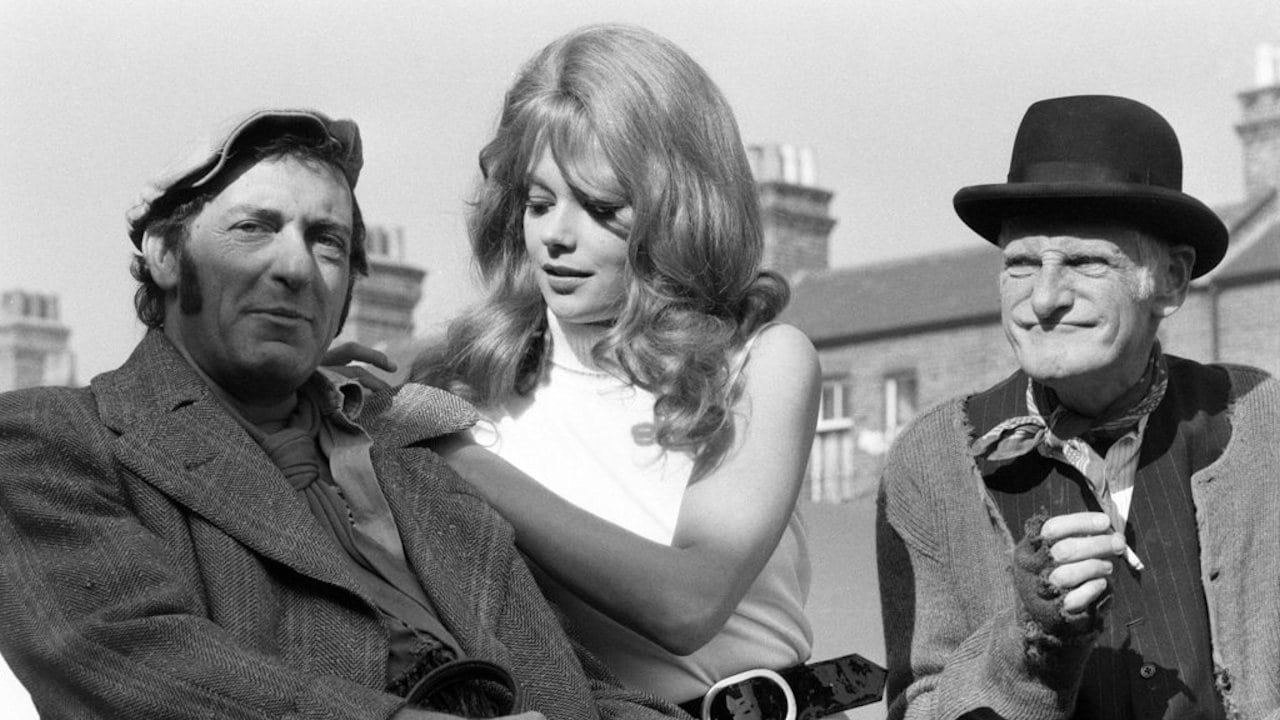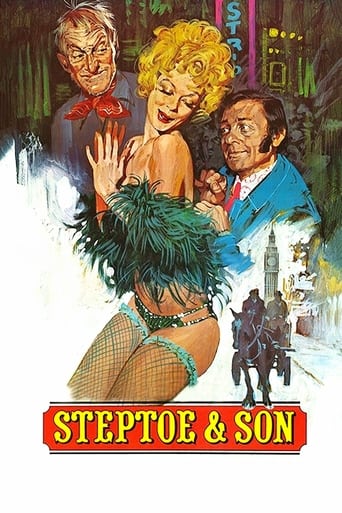

The 1970s was the decade of big screen adaptations for popular British TV series and STEPTOE AND SON is the first of two such workings for the ever-popular show (STEPTOE AND SON RIDE AGAIN would be released the following year). Fans of the series are likely to enjoy it as it sees the return of Harry H. Corbett and Wilfrid Brambell to their most famous roles, and the old camaraderie is back once more as if they'd never been away.However, this is a film that feels very different to the good-natured and light-hearted TV show. There's a cold, almost ruthless streak of pessimism in the production that makes this feel more like a tragedy than a comedy. In some ways it feels like an episode drawn out to feature length and the single-strand plot makes some elements of the production feel drawn out and repetitive.In essence the tale is about Corbett falling for a stripper and deciding to marry her, only for the needy Brambell to get in the way. Carolyn Seymour successfully portrays the awkwardness felt at coming between this pairing. There's little more to it than that, but at times this film feels like a depiction of psychological and emotional torture, with Brambell turning the thumb screws at every opportunity. It's testament to the skill of the two stars that this remains a likable comedy despite the darkness of the script. Inevitably, the grimy surroundings are better realised than ever on film as opposed to television, and the envelope is pushed further than ever with nudity and bad language in the mix.
... View MoreHarold meets the beautiful Zita, a stripper. Albert is landed for his son, until he announces that the pair plan to marry. Albert does everything he can to sabotage the relationship, even joining the pair on their honeymoon.I am stunned by so many of the negative reviews on this movie, for me the two Steptoe movies are the most successful films inspired by TV sitcoms.They kept our two lead characters completely in character, they didn't send the show up in the way that Rising Damp and Are You being served both did. It's a great mix of tragedy and comedy, for me comedy always works better when it's tinged with a bit of sadness and realism, it's why I've always been such a fan of One Foot in the Grave. The spite between the pair that we love throughout the TV series is brilliantly realised here, Harold desperate to escape, Albert desperate to keep hold of his son for his own reasons.Corbett and Bramble add their usual brilliance to their parts, Carolyn Seymour is just fabulous, so believable in her role, I firmly believe in that scene where he sees her and instantly falls in love with her.It's a great movie. 9/10
... View MoreTruly a disgusting, vile film, with only a small amount of real humour.The character of the father in particular is vulgar in the extreme (intentionally so, obviously), and portrayed in the most pathetic, seedy manner.My wife and I found this film horribly upsetting, with absolutely no redeeming features at all. Frankly, I wish I had never seen it.I consider this British effort to be a sick and gross embarrassment.Those who enjoyed this film have an ability I totally lack: that of rejoicing in a display of deep depravity and squalor.The producers should be ashamed of themselves.
... View MoreSteptoe and Son (1972) was a feature length movie featuring the two leads of the popular English television series. The plot deals with Harold falling for a "scrubber". Albert in his cruel and crude ways can see the marriage will never work, can Harold and his new bride work things out or will his mean old man ruin his plans for a happy family life?The first film is a lot like the television series, a mixture of melodrama and comedy. A tad uneven in some places but it's very enjoyable. The second film is more of a farcical comedy and it's more accessible to non-fans of this brilliant television series.Highly recommended for fans of the t.v. series and for people who want to take a peek at the original "Sanford and Son".
... View More